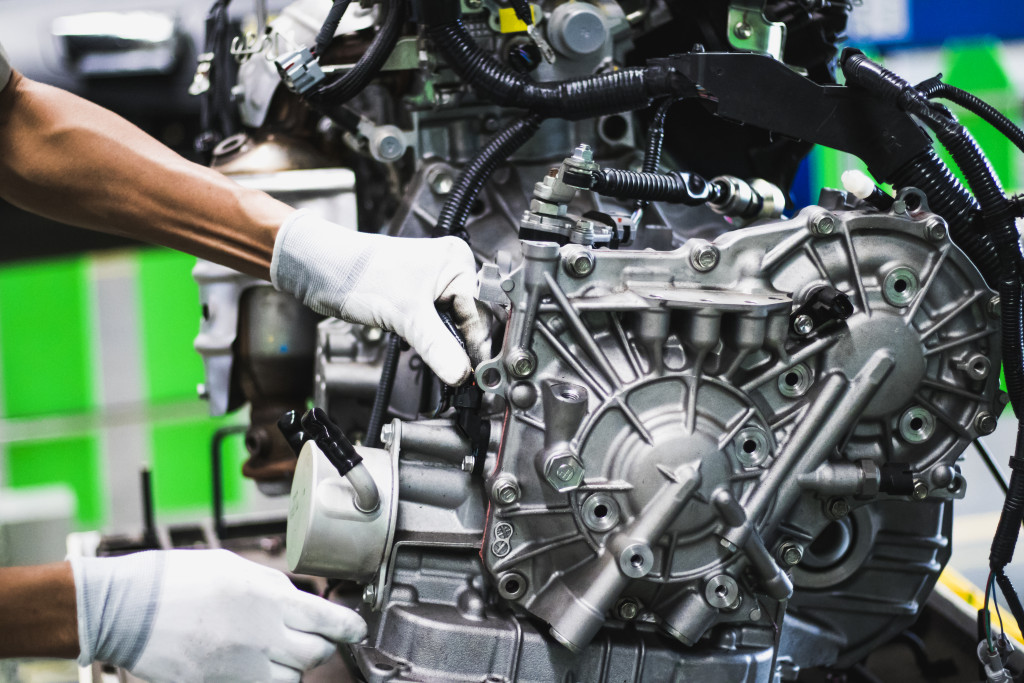Humans may have one of the biggest brains. However, humanity still cannot process information faster than a well-designed computer. People are also prone to physical exhaustion, mental stress, errors, and indecisiveness.
Many industries like the automotive businesses have started investing in automation to promote continuous productivity, higher efficiency, better precision, and even lower costs.
What Is Automation?
Automation uses various systems, principally computers, but also automated guidance control mechanisms, robotics, and machine learning systems to perform tasks that humans typically perform.
You can further break down automated systems into three categories:
- Programmed Automation: The use of machines, electronics, or other computerized technologies to carry out specific actions automatically under the command of preprogrammed instructions, usually in response to a particular stimulus, such as an environmental trigger or move from a human. This can include things like automated assembly lines and self-driving cars.
- Computerized Automation: The use of automated technologies such as artificial intelligence (AI), virtual reality (VR), and machine learning for data processing and analysis without the direct input of a human. Industries can use this for things like automated navigation and robotic control.
- Rule-Based Automation: The use of rules to determine the appropriate course of action that the system should take when a specific event occurs. A framework is created from which all possible outcomes are covered by an “if x happens, do y” rule, from which the final decision is made. This type of automation is prevalent in robotics, machine learning, and artificial intelligence systems.
These types of automation vary widely in what they do and how they go about doing it. However, all forms of automation share some common core concepts:
- Plans and carries out a repetitive task
- Secondary or additional tasks performed by machines along with human labor to increase productivity
- Computers executing preprogrammed routines to control equipment, machinery, processes for a variety of applications
The concept of automation has been developing for decades, although the term “automation” itself isn’t new. It was none other than the Ford Company that coined the idea in the 1940s. As a throwback, Ford made vehicles more affordable for everyone by applying the concept of automation in their business, including creating an assembly line.
The history of automation also dates back much further than to its first use. You can trace the roots of modern automated systems to the Industrial Revolution.

How Can Automation Help Automotive Businesses?
Automation can help automotive businesses in a variety of ways:
1. It Reduces the Risk of Injury
Automation helps reduce the risk of injury and motor accidents by eliminating any mistakes caused by human error. It can operate and monitor machinery around the clock, ensuring that employees aren’t in danger while performing or testing.
It decreases fatigue and prevents any form of distraction from a human. It also allows workers to focus on higher-priority tasks, which they may not do without an automation system.
A simple example is using automatic garage doors in the shop. Rolling doors up and down can lead to musculoskeletal strain, which can later affect their performance on the job. Granted, integrating this costs something for the business. But with proper maintenance and regular garage motor repairs, they can last for a long time.
Automation also helps enhance worker safety by allowing businesses to track and record data at all times. Analyzing the data will enable employers to identify potential problems and take steps before they cause accidents.
2. It Increases Productivity
Many companies have invested in automation to enhance their productivity year-round, whether the vehicle manufacturing process or warehouse management systems.
Automation speeds up tasks by making the process more efficient and time-saving. It also eliminates hiring extra hands to do specific jobs like breaking down more extensive parts into smaller pieces or assembling small ones.
3. Automation Saves Time and Money
A massive chunk of the company’s budget goes toward labor even if they have few employees just because it takes time to perform daily tasks. Automation, on the other hand, can do these things quickly and accurately.
It can also make more accurate decisions. Humans can make mistakes, even if they’re doing simple tasks. Machines don’t have emotions or feelings that may hinder their perception of reality. What you see is what you get from an automated system.
4. It Increases Quality Control
The use of automation in the automotive industry means that you get a higher standard of quality control than traditional methods such as manual inspection. Automation makes for more accurate measurements and greater detail.
It can also help reduce defects and increase its overall performance by creating more durable, reliable, and safe-to-use parts.
Automation is here to stay. It may not be perfect, but it can help make automotive businesses more productive and efficient while protecting their employees from harm. Whether they’re manufacturing a product or just doing custom work on cars, automation can help them produce better results.

